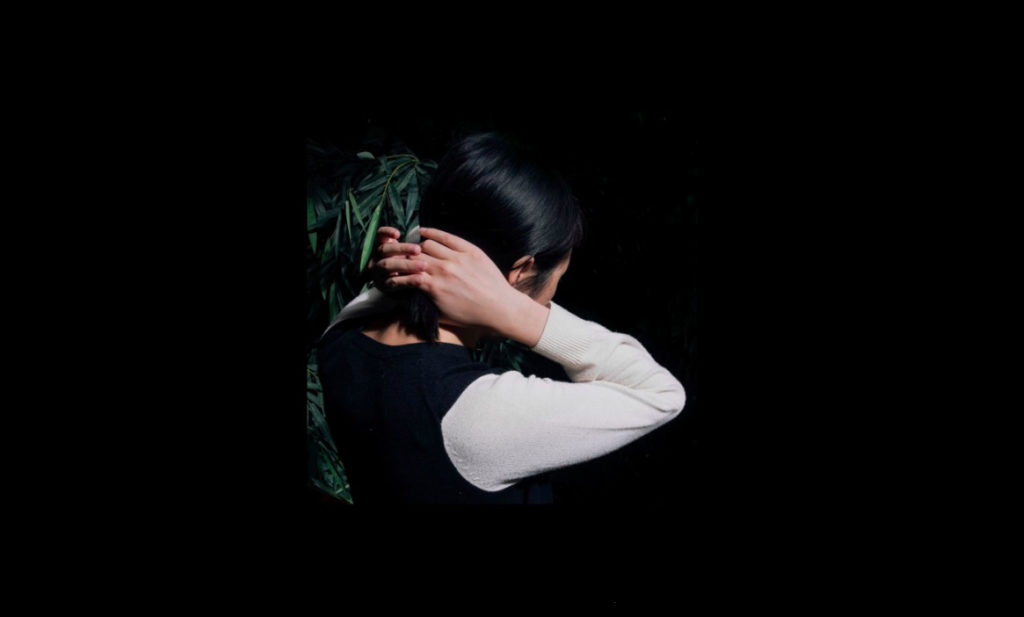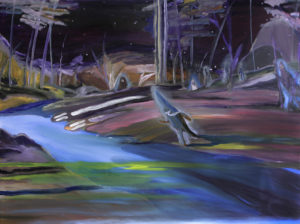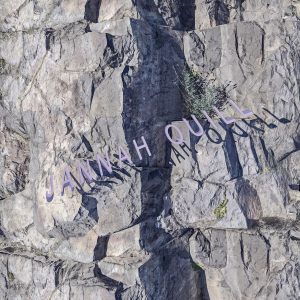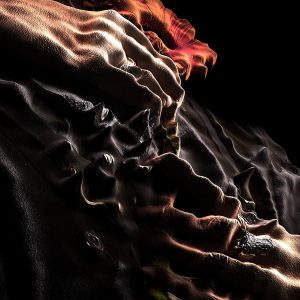Underground electronic music scenes in Australia have often been informed by geography. From the early 80s industrial experiments of SPK and Severed Heads, to local variants of rave culture in the 90s warehouses of Melbourne and Sydney, something about Australia’s electronic dance music and clubbing history is unique to the country’s sense of place. A feeling of distance from British or American cultural points of reference has been seen as both a source of creative freedom for artists and the cause of a much-discussed (and critiqued) ‘provincialism problem’. This negative framing of geography, though, seems to figure less with contemporary Australian producers, who are more audible internationally through their digital presence. This young crop of artists is looking closer to home and its fraught colonial identity, as well as its position as a largely immigrant nation in Asia Pacific.

Some of the first waves of this cultural shift can be heard in a new stream of recently founded record labels like producer Air Max ‘97’s Decisions label, Sumac and Valley Spirit, which are presenting snapshots into some of the country’s growing experimental club scenes. Melbourne’s Le Fag nights host forward-thinking techno and queer performance with inventive party themes that consistently evoke a new kind of Australian gothic futurism. Sonic arts organisation Liquid Architecture provides not only some of the most exciting programming of contemporary sound-based practices but situates them within critical discourse through expanded talks and discussion programs. Each of these initiatives is supported by a fertile underground of producers, artists and DJs, including those, listed below. These are some of the artists shaping Australia’s new music underground.
Chunyin is the club-oriented side project of Sydney-based producer and singer Rainbow Chan. The artist’s recent EP release for Decisions, 偽承諾 Pseudo Promitto, draws dynamically from a palette of contemporary ‘deconstructed club music’. Written after time spent in Hong Kong and Taipei, the record illustrates the energy of these cities, while also offering a reflective comment on consumption in the digital age.
Tracks such as the stand out ‘Look Back on This’, which is interspersed with text-to-speech samples of Facebook notifications, are sardonically self-aware of their own distribution via online platforms. This is particularly apparent in the press release, with its somewhat nihilistic description of “tracks to contribute to the din” of our hyper-saturated consumer-scape.
Makeda is a producer and DJ whose practice incorporates social and political criticism into sharply conceived sonic landscapes, melding ambient and experimental club music. One of the strongest realisations of the Melbourne-based artist’s work is this year’s J’OUVERT. A collaboration with dancer and performance artist Ece Yavuz, Trinidad-born steel drum player Alvin Rostant and percussionist Ryan Bennett, the project alludes to the cultural legacies of its Trinidad street festival namesake through dance, performance and sound.
In this ambitious project, the culturally-loaded timbres of the steel drum are pulled apart, interspersed with digital synths, vocal samples and signal processing. This creates a sonic ambiguity that doesn’t detach itself from the initial subject matter, but rather illustrates the amorphous evolution of the cultural histories informing Makeda’s work. The project was premiered earlier this year at PRECOG, an impressively-programmed take on the idea of the club night, curated by DJ Sezzo and produced by Makeda in partnership with Liquid Architecture and Next Wave.
Melbourne-based producer CORIN creates glistening and intricate synth pieces that bring to mind the cybernetic minimalism of Fatima Al Qadiri, Sino grime, and the epic futurism of Kenji Kawai’s soundtrack to Ghost In The Shell.
Tracks such as 2017’s ‘fatal redemption’ show CORIN’s knack for frenetic synth stabs and energetic pacing, evoking classic video game soundtracks with a lush and immersive sound palette. CORIN has had a promising and productive year, being a standout performer at Unsound’s Adelaide leg in November, support for Berlin producer Pan Daijing’s recent Melbourne show, as well as other European appearances.
Justin Shoulder’s performance oeuvre Phasmahammer sees the artist adopt different stage personas drawing from ancestral myth and the artist’s queer migrant heritage. Recent performances have featured collaborations with another exceptional Melbourne electronic music producer CORIN, where Shoulder brings vogue and ballroom dance into the spectacle of the digital age.
The cyberpunk aesthetics in Shoulder’s maximalist use of lighting, sound and costume gestures at the fraught nature of human-ness in the Anthropocene era; a present in which we have shaped our environment with technology, but in doing so have confused our relationship with nature. Evoking drag performance to create a queered science fiction aesthetic, Shoulder’s work speaks to our complex wrangling with identity in our online selves, and our aesthetic tendency towards the sublime in the digital present.

Previously releasing atmospheric dark wave-inspired tracks under the alias Egypt Lies, Louis Avolo’s latest work has turned to sparse and ambient techno music. The Melbourne-based artist’s 2018 EP, Young Boys in a Nightclub, project can be situated as a contribution to the canon of dance music’s queer heritage. While taking a more contemporary electro approach, the intimacy of Avolo’s production is evocative of club culture’s inextricable link with a history of invite-only parties and nightclubs, like David Mancuso’s legendary NYC parties of the 70s.
The EP’s three tracks titled ‘Prelude’, ‘Nightclub’ and ‘Young’ are pared back pieces that are at once club ready, but together create a narrative that is well-suited to private listening. It shifts between ambient pads and percussive dance breaks,moodily soundtracking late nights and spaces of transgression.
DJ Plead (aka Jarred Beeler) is a producer based in Melbourne whose sonic palette draws from his own cultural heritage. In a recent release for Decisions (with a lead track ‘Get In Circle’ premiered on AQNB), the Sumac label owner blends the staccato electronic drum patterns of footwork and contemporary club music with the energy of dancing circles at Lebanese weddings.
EP opener ‘DVE’ draws an ecstatic synchronicity between the collective euphoria of public dancing, be it through a sweaty club sound system or Levantine dabke. The release is a fitting soundscape to the growing musical and representational diversity of Australia’s dance music and clubbing underground.
Hannah Donnelly is a Wuradjeri writer and DJ who founded the Sovereign Trax blog. The Naarm/Melbourne-based practitioner curates playlists to highlight contemporary Aboriginal and Torres Strait Islander music through Indigenous-led perspectives and frameworks.
Donnelly’s own writing deals in ‘speculative fiction’; sci-fi stories that consider Indigenous future responses to climate change and its effects on Country, the connection to which is central to Aboriginal identity. Currently a writer-in-residence with Australian contemporary art journal un Magazine, hers is an exciting voice challenging and reorienting Eurocentric perspectives that are still pervasive in contemporary Australian underground music and art landscapes today.**

















